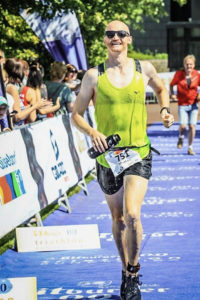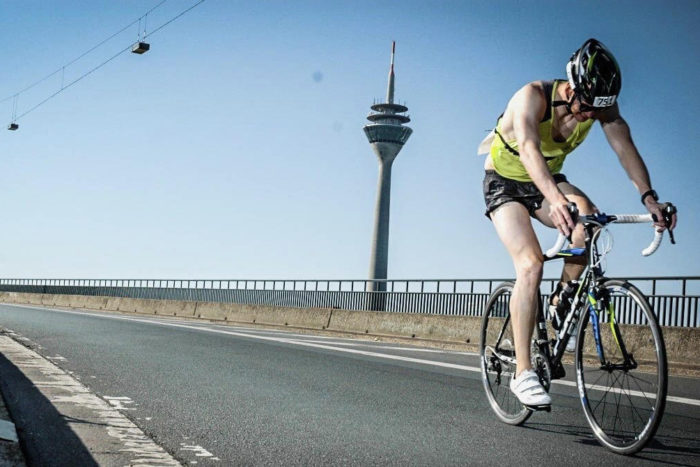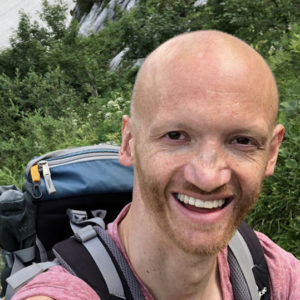By Markus Kappen
You don’t choose your passion. Passion chooses you without you even noticing. It is the glow in your eyes whenever you partake in it or talk about it. It is when your pulse rises and you begin to speak faster.
When I was a child, sports were always a passion of mine: football, cycling, basketball – anything with movement. I have always loved setting high goals for myself, testing my limits and competing against others. Despite my hypohidrotic ectodermal dysplasia (HED), my family has always encouraged me to follow my passion.
They always gave me tips on how to cool down so that I can have fun even in high temperatures and they always trusted me to listen to my body. There were, however, times when my passion for sports caused suffering because of HED.
It was hard for me to realize that I was limited during the warm season on the soccer field compared to the other players and that I would probably never become a competitive soccer player (which, by the way, in retrospect was mainly due to my lack of talent – after all, today I know examples of players with HED who kick in the major leagues). When puberty hit, my focus changed and I almost completely lost sight of the sport.
Running On

Once I started working, I began jogging again to reduce stress, build self-confidence and keep my body healthy despite constantly sitting in the office. I found my next passion for triathlons by participating in a triathlon (swimming, cycling, running), with my fellow co-workers. Unfortunately, this is a sport in which all competitions are held in summer.
The advantage of triathlons, however, is that everyone has to focus on competing with themselves, the distance and the external circumstances: “You vs. You”, regardless of whether you are overweight or average weight, if you have one leg or two, or if you are able to sweat or not.
Step by step, I intensified my training and distance, tested alternative ways to cool down and noticed that I could push myself more and more, all while handling higher temperatures. In summer, I will certainly always need more water and ice cubes than athletes with sweat glands.
I will always wear the most revealing clothes of all participants in the competition and probably will not become world champion in Hawaii in my lifetime, but my eyes shine with great joy at all those who see me pursuing my passion.
It’s an Inside Job
The current marathon record holder, Eliud Kipchoge from Kenya, puts his passion under the motto “No human is limited”. I have struggled with this motto for a long time and never felt like it would hold true to those with HED.

So when I started training four years ago, it seemed pointless to me to attempt to improve my running endurance in midsummer. After all, I would never magically grow sweat glands and I had to accept that this is my limitation.
Today, I think I understand what Eliud means: The game looks different from the inside! Once you’ve started, you’ll define your own goals and your own way to get there!
Your path becomes safer and your goals more intense. You will start to love the sport and the passion more than where it takes you! Surprisingly since then, it feels easier to reach my goals!
In summer 2019, I fulfilled a big dream by completing the half Ironman distance at 83 degrees. Since then, I’ve tried to push my limits even further by setting new goals and enjoying every step of the way there.
Next stop: Ironman?!
Markus Kappen is a guest blogger for the National Foundation for Ectodermal Dysplasias. This triathlon athlete lives in Germany. If you are interested in more information about Markus’ journey check out his account ‘make.it.kappen’ on Instagram.
(Editor’s Note: Markus’ story was originally published by the ectodermal dysplasia support group in Germany/Austria in the summer of 2019 and we thank them for letting us re-publish.)
